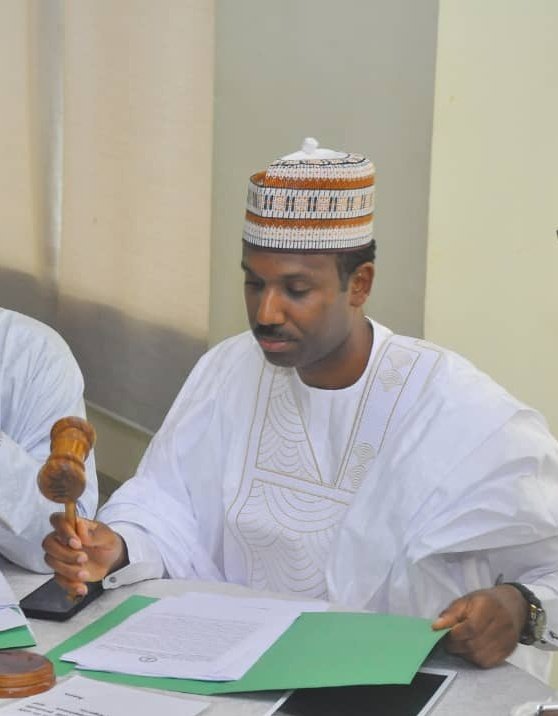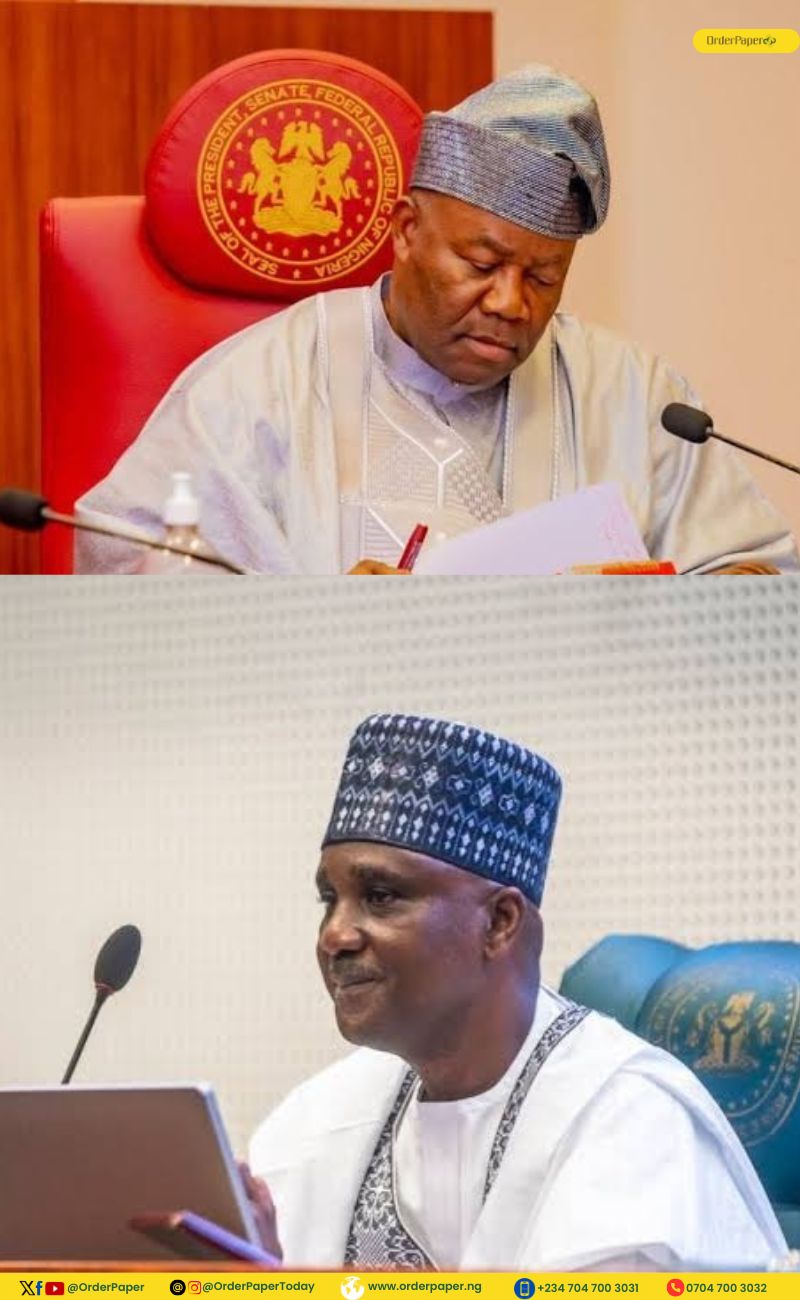Speaker Abass noted that beyond economic considerations, gas flaring poses serious health hazards and is a major contributor to climate change and environmental degradation.

The House of Representatives has vowed to recover over nine billion dollars ($9bn) in gas flaring fines by erring local and foreign companies operating in the country’s oil and gas sector.
Chairman of the Ad-hoc Committee investigating gas flaring, Rep. Ahmed Munir, stated this on Monday, at a briefing shortly after engagement with stakeholders at the National Assembly.
Munir expressed concern over the level of impunity being perpetuated by the operators, adding that the Tenth Assembly will do all within its powers to ensure the recovery of all unpaid levies as well as compliance with extant legislations and regulations.
READ ALSO: Yet again, Reps to investigate oil theft and attendant revenue loss
“I can assure you that we will not take this lying down. There are two ways to go about it, we have the issue of penalties that are not paid, amounting to about $9 billion, or thereabout, that one is there. We know how to recover it.
Secondly, going forward, those that are still polluting how do you ensure you get it down to zero and what are the penalties that are going to be out in place? Thirdly, the big difference between then and now is, we now have a PIA in place so how do you implement it? Where we have loopholes that’s why we are here to hear from the people concerned. Is there any amendment that will be required?
We have to create a mechanism where the business environment requires that certain things need to be put in place. If an establishment is going out to look for loan and you are owing another bank, I believe there’s a central database of CBN that even if you’re owing N1 you’ll be declined. So, why shouldn’t we have a centralised database of defaulters owing, of the people who are not doing the right thing they can’t further renege on these issues?” Hon. Munir queried.
READ ALSO: Senate initiates move on bitumen exploration as solution to national development
In his submission, RMAFC’S Chairman, Gas Monitoring Committee, Patrick Mgbebu, disclosed that the gas flaring penalty payment regime from 2013-2018 (2018 January – June) was US$0.30, while from 2018 ( July – December) to 2023.
According to him, it is pegged at $2.00, and the penalties payable amounted to $3,465,299,226.55 and the value of gas would have been $12,403,000,001.20 if the gas was sold and not flared.
“The Commission compared the data from NOSDRA with the data from the Nigerian Upstream Petroleum Regulatory Commission (NUPRC) and the following observations were made that the volume of gas flared according to NOSDRA and NUPRC were 838,667,211 MSCF and 700,975,019 MSCF respectively. The difference which is 137,692,192 MSCF indicated that the Federation Account was shortchanged. It should be noted that the comparison covered three years from 2020 to 2022.
The value of gas flared according to NOSDRA and NUPRC are $320,583,355.48 and $43,325,050.76 respectively. As such the variance indicated that the Federation Account was shortchanged by $277,258,304.72.”
While noting that Nigeria has a proven gas reserves of two hundred and one (201) trillion standard cubic feet, and unproven gas reserves of six hundred (600) trillion standard cubic feet, yet production of gas remains very low and unstable, he called for drastic measures toward tackling the menace.
READ ALSO: EXCLUSIVE: Delta Rep outlines agenda to reduce poverty, promote free enterprise
On his part, the Director at Federal Ministry of Environment, Olubunmi Olusanya, underscored the need to give legislative backing to the use of oil trackers as part of measures aimed at ending the gas flaring menace in the country.
“I also want to plead that the oil tracker should be given legislative backing so that it can be used as benchmark for sanctioning of the 44 companies. Presently, a lot of companies are flaring because what they are flaring is nothing compared to the investment in the utilisation of gas that is being flared.
But when the penalty is adjusted appropriately and we are not depending on their meters, and we are using the gas flare meter developed by NOSDRA, and they are paying heavily for the flaring gasses, I am very sure all of them will begin to think of alternative use of gas being flared unabatedly,” he stressed.
READ ALSO: Reps to probe hike in fuel price, Lagos lawmaker chairs Committee
Earlier, Speaker Tajudeen Abbas, who was represented by the Chief Whip, Rep. Usman Kumo (Gombe, APC) noted that gas flaring and venting has been a significant environmental, economic, health and social concern in our country for many years.
“Firstly, gas flaring represents a tremendous waste of valuable resources. Natural gas is a precious energy source that could be utilized for various purposes, such as electricity generation, heating, or industrial processes. By simply burning off this gas, we are squandering a valuable resource that could contribute to energy security and sustainability.
Moreover, gas flaring has led to substantial economic losses and revenue decline for the nation. The flared gas represents lost revenue that could have been generated through its sale or utilization. Official records indicate that we lose about $2.5 billion annually to gas flaring.
However, the consequences of gas flaring extend beyond economic considerations. It also poses serious health hazards to nearby communities. The combustion of gases released during flaring produces various toxic substances which have detrimental effects on human health when inhaled or exposed to over an extended period. Affected communities often experience higher rates of respiratory diseases, skin disorders, and other health issues compared to areas without gas flaring.”
READ ALSO: Reps to investigate NNPC’s alleged non-remittance of N2trn in revenues
In his presentation, NOSDRA Director General, Idris Musa, who stressed the need for improvement on the penalty application process and procedure of the application and collection, also harped on the need to abolish the dichotomy of penalty administration.
He added that a total of 3.8 billion MSCF was flared between 2013 to date, while a total sum of $7.6 billion in penalties is payable.
To this end, the lawmakers resolved to investigate the rationale behind the $277,258,304.72 disparity in the gas flare penalties computed by NOSDRA and NUPRC, and also summon all the Chief Executive Officers of 19 oil and gas companies and others to appear before the Committee on Tuesday, 25th July 2023.
They include Total/Mobil JV Domestic Wing; Total/Oando JV; Total Energies; African Petroleum (AP) Plc. now Ardova PLC; Azman Oil & Gas Limited; Matrix Oil & Gas; A. M Shafa Ltd; Nigerian Electricity Regulatory Commission (NERC); National Council on Climate Change (NCCC); Nigerian Petroleum Development Company (NPDC) amongst others.


